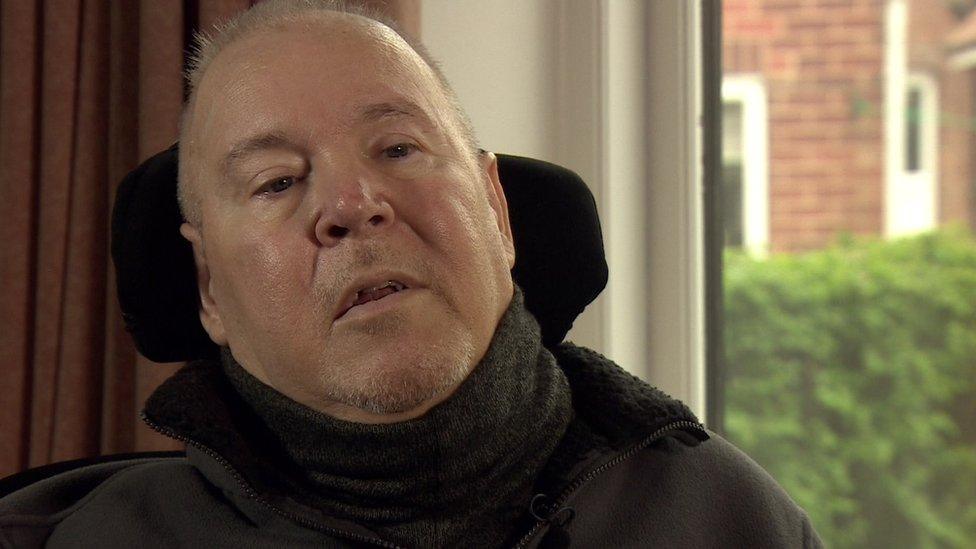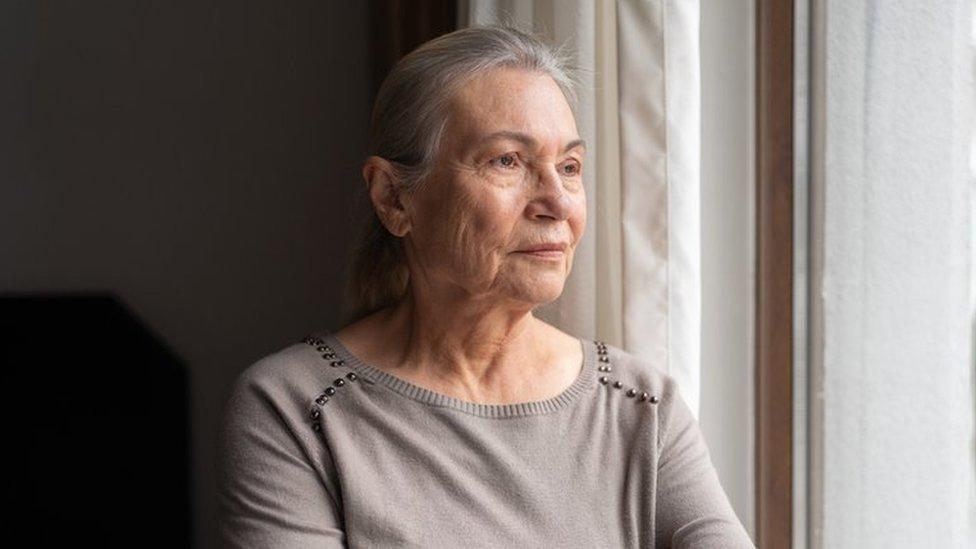Vincent Lambert: French court ends life support tug-of-war
- Published
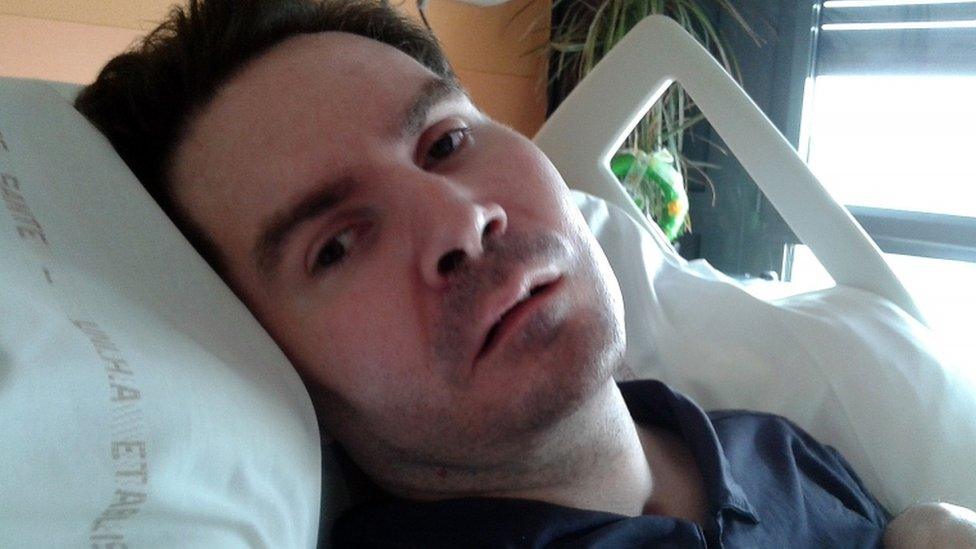
Vincent Lambert, seen here in 2015, suffered irreversible brain damage but is not on a respirator
France's highest court has given a final ruling that doctors can stop feeding a man who has been in a persistent vegetative state since a road accident nearly 11 years ago.
The Court of Cassation overturned an appeal court ruling issued on 20 May.
The case of quadriplegic Vincent Lambert, 42, has been at the centre of the right-to-die debate in France.
Lawyers for his parents threatened on Friday to press murder charges if his life support was halted, AFP reports.
They have long battled to keep him alive, but the case has divided their family as well as the nation. Mr Lambert's wife, six of his siblings and a nephew have argued that the humane course was to let him die.
The European Court of Human Rights ruled against the parents in 2015 but doctors did not immediately fulfil the plan to turn off his life support until last month, because of security concerns.
On 20 May doctors at the Sebastopol Hospital in the northern city of Reims began removing his feeding tubes.
Within hours the Paris Court of Appeal dramatically ordered them to resume hydration and nutrition and the case was referred to the Court of Cassation.
In its ruling on Friday, the court said the life support mechanisms can be turned off "from now", a lawyer for Mr Lambert's wife Rachel told AFP.
There can be no further appeal.
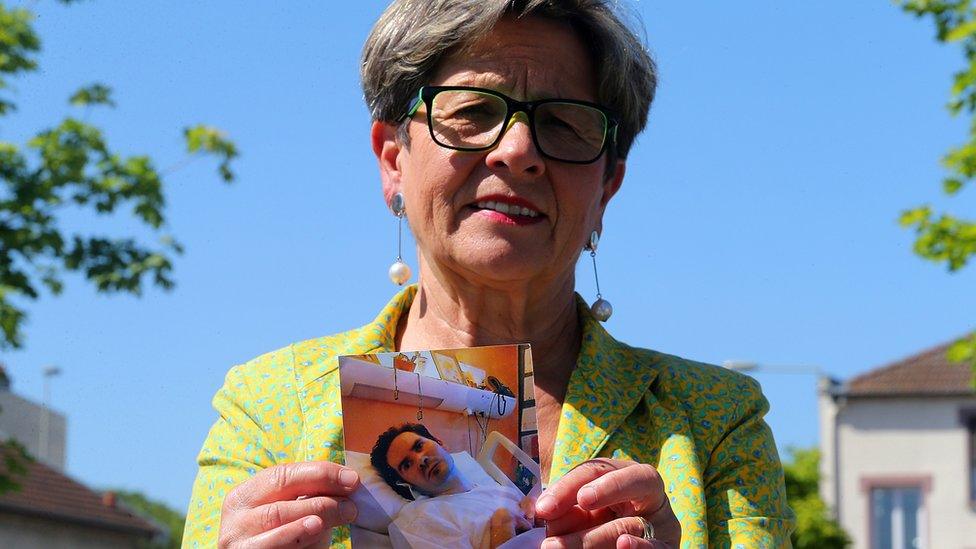
Viviane Lambert has fought for her son's life to continue
The high-profile case has proved extremely divisive in France, where euthanasia is illegal but doctors are allowed to put terminally ill patients into deep sedation.
Mr Lambert is a former psychiatric nurse who has been in a quadriplegic state of paralysis, with minimal consciousness, since a motorbike accident in 2008.
He has been kept alive with food and water delivered through a gastric tube. He can breathe without artificial aid and occasionally opens his eyes.
After several years of trying to improve his condition, Mr Lambert's medical team recommended in 2013 that care should stop, in consultation with his wife.
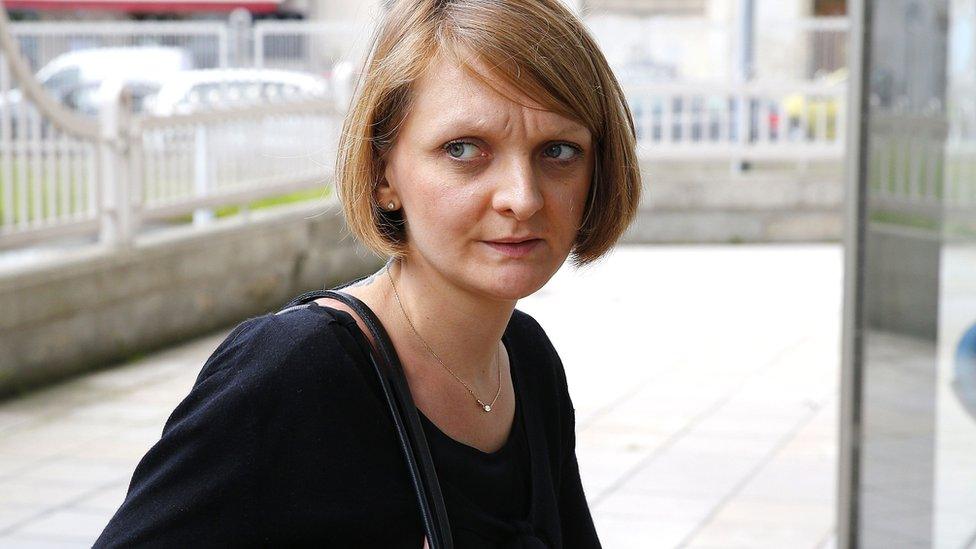
Rachel Lambert insists her husband would "never have wanted to be kept in this state"
Because the rest of his family were not consulted, the decision was challenged and a lengthy legal battle over his care began.
His devoutly Roman Catholic parents, Pierre and Viviane, and two of his siblings remained adamant the care should continue.
- Published28 April 2018
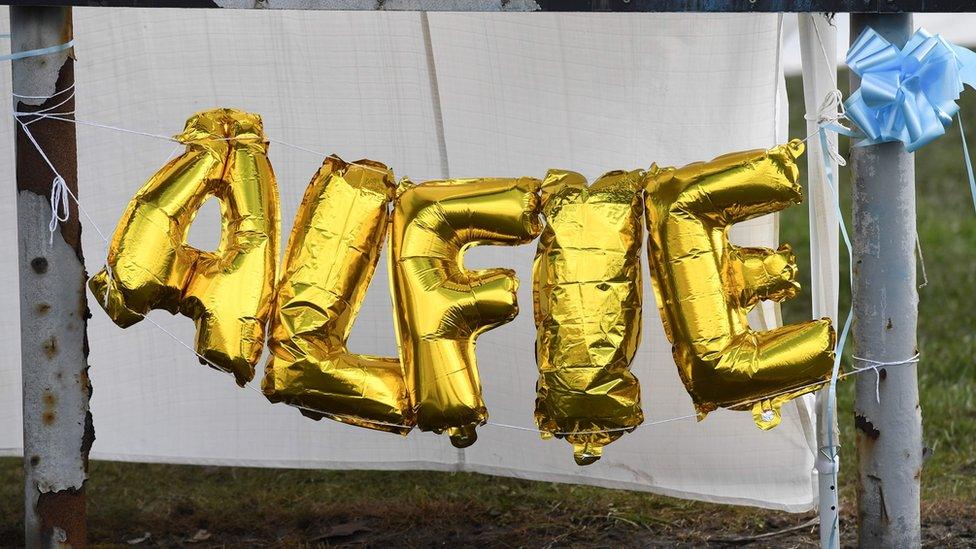
- Published3 October 2019
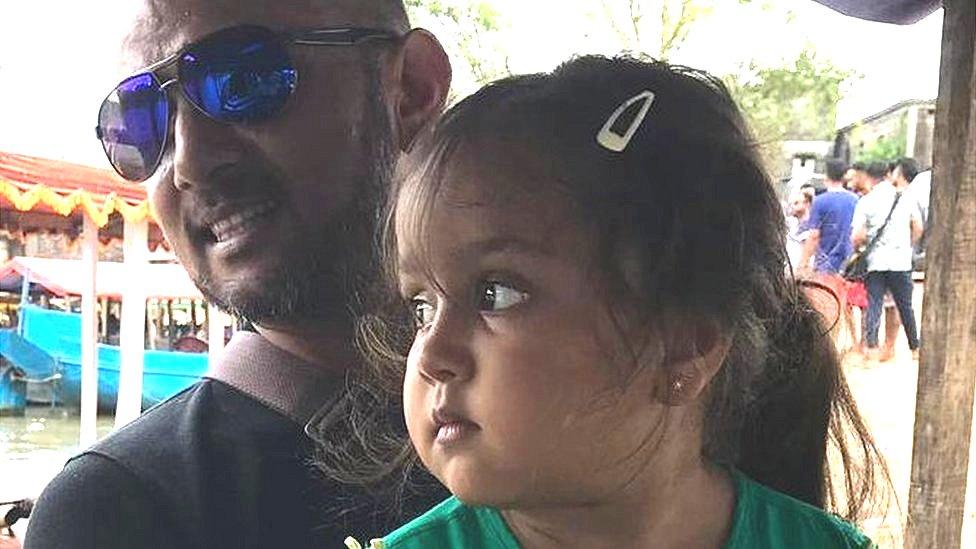
- Published7 May 2019
